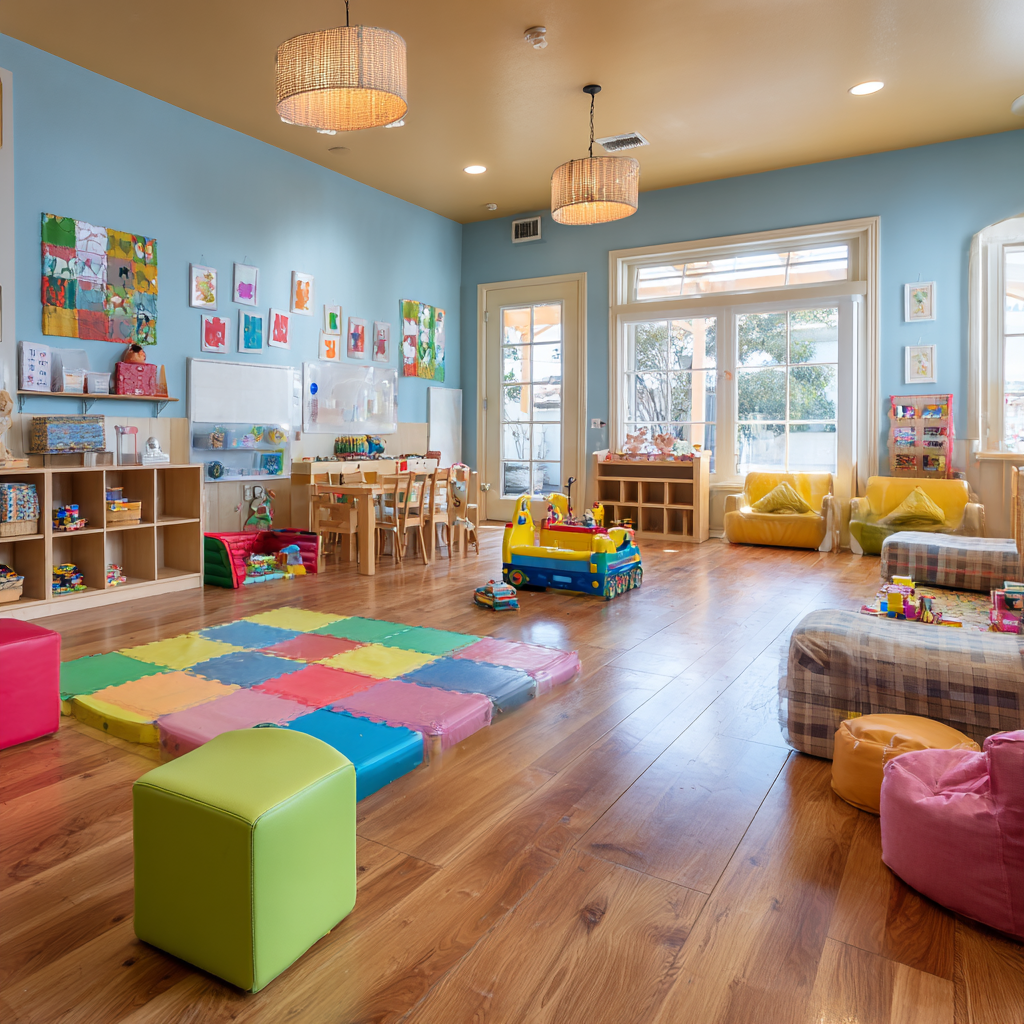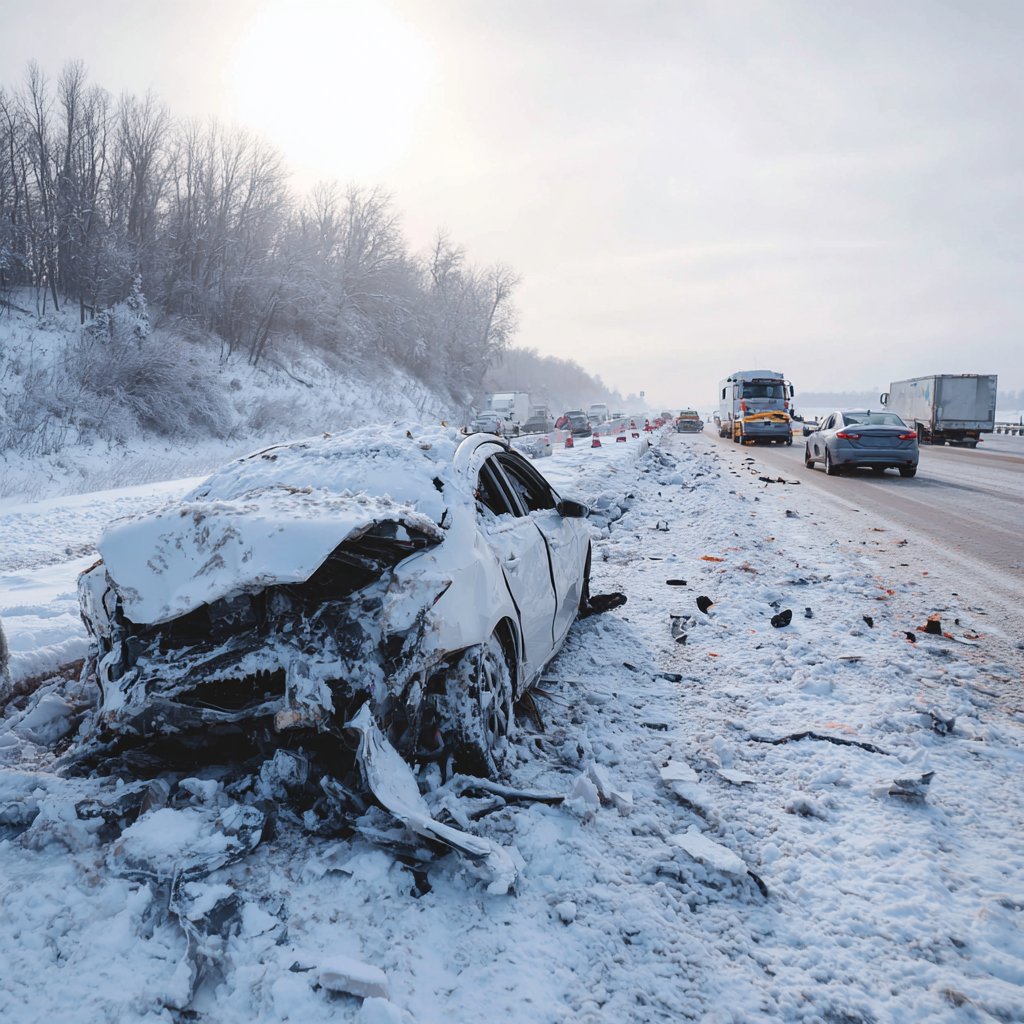The Ultimate Guide to Home Daycare Insurance
TLDR: Home Daycare Insurance - A Complete Provider's Checklist
Standard homeowner's insurance won’t cover business-related daycare claims.
Home daycare insurance includes liability, E&O, property, and abuse coverage.
Each state (FL, MN, WI, etc.) has different legal insurance requirements.
Expect to pay $400–$2,500/year depending on risk and scope of care.
Shoreline Public Adjusters can help with denied or underpaid daycare insurance claims.
Why Home Daycare Insurance Is Non-Negotiable for Providers
Running a daycare from home is no small thing. It takes more than just a few toys, a spare room, and a love of kids. It means inviting families into your personal space and taking responsibility for the safety, development, and well-being of children who aren't your own. That comes with serious risks—physical, legal, and financial.
Home daycare insurance isn’t just a checkbox for licensure—it’s what stands between you and the fallout from an unexpected accident, a misunderstanding, or even a storm that shuts down your operation for weeks. Most homeowner’s policies specifically exclude claims related to running a business on your property. So even if you think you're covered, you're probably not.
This guide breaks down what home daycare insurance actually is, what it covers (and doesn't), how state laws factor in, and what to watch out for in the fine print. If you're caring for children in Florida, Minnesota, or Wisconsin, this is especially for you.
What Exactly Is Home Daycare Insurance?
At its core, home daycare insurance is business insurance. It’s designed for people who operate a childcare business out of their home—whether licensed or not, full-time or part-time. It wraps together several types of coverage, tailored for the specific risks you face:
Liability if a child gets hurt or property is damaged
Protection if you're accused of negligence or improper care
Coverage for your business assets—like furniture, learning materials, or play equipment
Income replacement if something forces you to shut down temporarily
The key difference from a typical homeowner's policy is intent. Home insurance protects your personal assets and liability, but as soon as you're taking money in exchange for childcare, you're running a business. Insurers view that as a separate exposure and treat it very differently.
A lot of providers don’t realize their personal policy might even be voided if they fail to disclose that they’re running a daycare out of the home. That’s not just risky—that’s potentially catastrophic.
Do You Really Need It?
Short answer? Yes. Even if you're just watching a few kids a few days a week. Even if you know all the families personally. Even if you've "never had an issue."
Risk doesn’t care about your intentions. All it takes is one fall down the stairs, one allergic reaction, one accusation of inappropriate behavior—even if it's baseless—and suddenly you’re dealing with thousands (or tens of thousands) in legal bills or settlements.
Many states, including Florida, Minnesota, and Wisconsin, require you to carry liability insurance if you're operating a licensed or certified daycare. But even if they didn’t, it would still be the smart move. You're not just protecting yourself—you're protecting the kids and families who trust you.
What Does Home Daycare Insurance Actually Cover?
Let's go deeper than the buzzwords. These are the real layers of protection you'd be paying for—and why they matter:
General Liability
This is the most foundational coverage. It protects you if a child is injured or if a parent claims property damage occurred due to negligence on your part. But it's more than slips and falls. Think burns, bites (if you have pets), or even an injury from a toy that breaks mid-play.
And here's the nuance: liability coverage isn’t just about paying for medical bills. It can also cover your legal defense costs if you’re sued—even if the claim is groundless.
Professional Liability (Errors & Omissions)
This goes deeper than physical injuries. It covers accusations that you failed in your professional duties—like improper supervision, failure to follow allergy protocols, or even emotional distress claims related to discipline methods.
Most providers don’t think of themselves as “professionals” in the legal sense, but you are. And this type of coverage exists because mistakes—real or alleged—can be expensive to defend.
Commercial Property Insurance
Even if your daycare is just one room in your home, you likely have thousands of dollars worth of daycare-specific items: cots, high chairs, safety gates, educational tools, craft supplies, and more. If a fire, storm, or other covered event damages that stuff, this coverage helps you replace it.
Some policies also cover the structural portion of your home that’s designated for the daycare, but you usually have to explicitly declare that space during underwriting.
Business Interruption
If your home becomes uninhabitable—due to fire, flood, or storm damage—and you can’t run your daycare, this coverage can replace the income you lose during that downtime. It’s not automatic, and not all carriers offer it. But it’s one of the most valuable types of protection, especially in places like Florida where hurricane risk is real.
Abuse and Molestation Coverage
This is uncomfortable to talk about, but it’s critically important. Even unfounded allegations of abuse can destroy a business—and a reputation. Many policies exclude this coverage unless it’s specifically added, and some providers don’t even realize they’re unprotected until it’s too late.
If you're hiring assistants or have family members helping out, this becomes even more important.
Watch Out for These Exclusions
Insurance policies are legal contracts. What’s not covered is just as important as what is. Here are some common exclusions that catch people off guard:
Pet-related injuries: If your dog bites a child, some policies won’t cover it—especially if it’s a breed considered “high risk.”
Trampolines or inflatables: These are often excluded outright unless you purchase a special rider.
Communicable diseases: If a child gets sick and a parent blames your daycare, standard policies usually won’t touch it.
Off-premises incidents: Field trips, playground visits, or transporting kids in your vehicle might not be covered unless your policy is structured to include that.
Read the fine print. Then read it again. Or better yet, go through it line by line with a broker who understands the childcare space.
How State Requirements Affect Your Policy
Insurance isn’t just a good idea—it’s often the law. But how much you’re required to carry depends on where you live:
Florida
Family child care homes must carry liability insurance.
Minimum limits: $100,000 per occurrence, $300,000 aggregate.
Providers must give parents written proof of insurance or, if uninsured, have parents sign a specific waiver (which still carries risk).
Minnesota
Licensed providers need to carry liability insurance unless they get parents to sign a waiver.
Recommended minimum: $500,000 per occurrence.
However, waivers do not shield you from lawsuits—they just show the parent knew you weren’t insured.
Wisconsin
Licensed providers must carry liability insurance.
The state may require you to list certain government departments as "additional insureds" on your policy.
Failing to maintain coverage can result in revoked licensure.
Even if you’re legally allowed to run a daycare without insurance (with waivers), that doesn’t mean you should. Legal fees, reputational damage, and stress from a single incident could easily outweigh the cost of a solid policy.
So What Does It Cost—and Why?
Pricing varies wildly based on:
Number of children
Your location
Coverage limits
Claims history
Whether you have pets or playground equipment
But here’s a general range:
Barebones general liability policy: $400–$1,200 per year
Full coverage with all bells and whistles: $1,000–$2,500 per year
It's not pocket change. But when you think about it in terms of what you're really protecting—your income, your assets, your reputation—it starts to make a lot more sense. And there are ways to reduce costs:
Install safety features like baby gates and smoke alarms
Maintain meticulous records and policies
Work with a broker to bundle or customize
What Happens If a Claim Is Denied?
This is where things get murky. Insurance companies don’t always pay out—even on what seem like valid claims. Maybe they say your policy doesn’t cover that specific type of injury. Or they deny based on a technicality in your policy wording. Maybe they drag their feet so long that you’re forced to settle for less just to move on.
If you’re running a daycare in Florida, Minnesota, or Wisconsin and this happens to you, it may be worth talking to a licensed public adjuster. They're professionals who represent policyholders (not insurance companies) and can help you navigate the claims process, negotiate with your insurer, and fight for the payout you deserve.
Shoreline Public Adjusters: We’re Here When the Policy Fails You
If you're dealing with a denied or underpaid claim and it’s putting your business—and the families you serve—at risk, we can help. At Shoreline Public Adjusters, we advocate for policyholders when insurance companies say "no."
We handle property damage claims, business interruption losses, and coverage disputes for home daycare providers across Florida, Minnesota, and Wisconsin. You take care of the kids—we’ll take care of the paperwork, negotiations, and stress.
Contact us today for a free consultation and find out how we can support your business when it matters most.
Shoreline Public Adjusters, LLC
780 Fifth Avenue South
Suite #200
Naples, FL 34102Email: hello@teamshoreline.com
Phone: 954-546-1899
Fax: 239-778-9889






Discover comprehensive burst pipe repair costs for Minnesota and Wisconsin homeowners. This detailed guide covers repair pricing from $500 to $15,000+, what insurance covers, hidden costs like water damage and mold, and how to prevent expensive pipe failures. Learn cost factors including pipe location, material type, and damage extent. Expert insights help you understand when repair versus replacement makes sense and how public adjusters maximize insurance claims for water damage restoration.